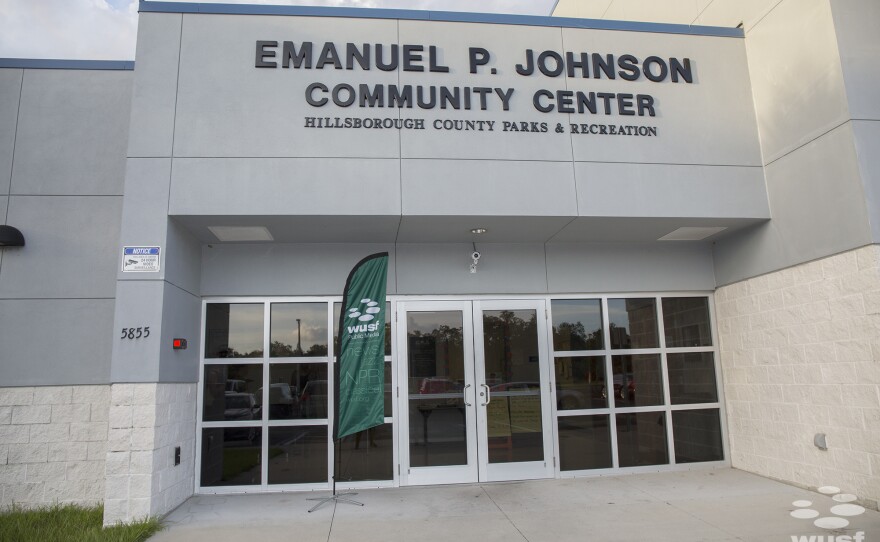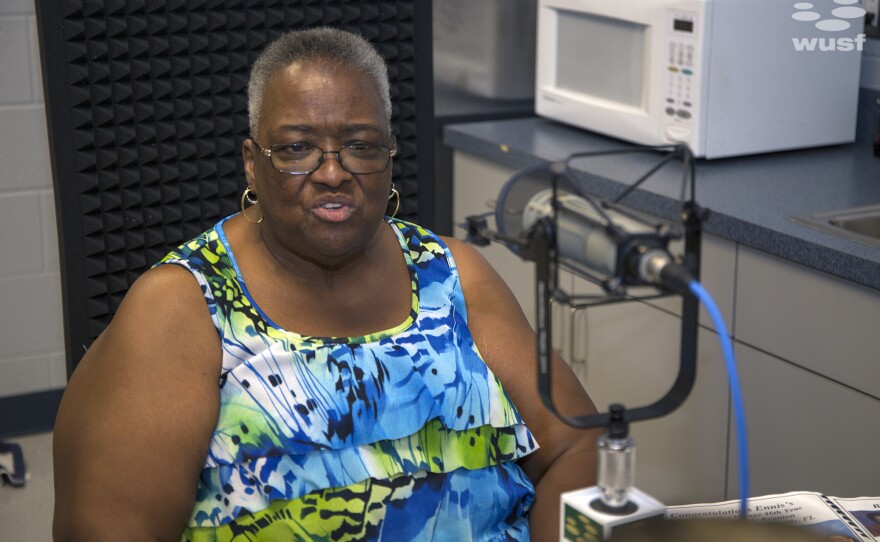This week on Florida Matters we'll hear the first episode in a special two-part series called Telling Tampa Bay Stories: Progress Village.
We'll hear residents of Tampa's first affordable housing suburb share their memories growing up there. And they'll talk about their hopes for the neighborhood's future.
In this preview, we hear from Pamela Ennis Colleton. She was raised in Progress Village and fondly remembers its family-like atmosphere.
Read a portion of Pamela’s story, which was produced by Stephanie Colombini with the help of USF student journalist Megan Holzwarth:
My name is Pamela Ennis Colleton. I’ve lived in Progress Village since September 5, 1960 so I’ve been here for 57 years. I grew up in the neighborhood so I know a lot of the families here, the older families as well as the newer generations of families.
I’ve worked at the Parks and Recreation for eight years doing the basketball program at the gym. So a lot of the newer kids I met. It’s a feeling of home, it really is.
I lived on 49th St., and there was only like five or eight houses built when we moved on that street.
Everybody loved the park. Mr. Johnson would open up the park for us in the evenings – he ran the concession stand. Any day of the week we knew when he was there. Around 3 or 4 p.m., he would put a quarter in the jukebox and it would play five records. By the time he played those records the park was full.
He played rhythm and blues songs that were on the jukebox. James Brown, Wilson Pickett, etc. In front of the concession stand we had a large piece of concrete to where the music was playing you could go and dance if you wanted to.
We had a four-square court and that stayed busy, the four-square court. From the beginning to the end that stayed busy. So that’s where we would be, and it was okay because once we were at the park, we were like in a safe haven. Our parents didn’t worry about us because we were at the park. If they needed us for anything they knew to come to the park. So that was our hang out spot, the park.
I moved away in 1973 – I got married. He was trying to take me away from my family, and that wasn’t working too well for me, so I came back to the village and I’ve been here ever since.
I bought my own home. It took me a long time to own my house. Owning that house is important to me because my children always have some place to come back to. I always knew I could go back to my mama’s house if I had to go back. And that’s how I want my children to feel. You can always come home when you can’t go anyplace else.
[Pulls out booklet] I picked up this First Annual Family Reunion booklet, this is one of my joys. It says First Annual Family Reunion, [points to booklet] and this is the seal of Progress Village Civic Council. There are four symbols on there. We have a tire that means we work hard, we got folding hands which means brotherhood; we are American citizens and we trust in God. So this is what our symbols mean. We had this in 2006, that was our first year for our family reunion.
We had people coming back to Progress Village from years, who haven’t been back in Progress Village for years. So it was beautiful, it was beautiful.





